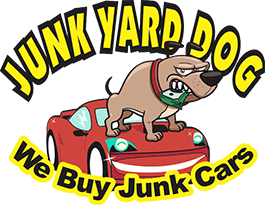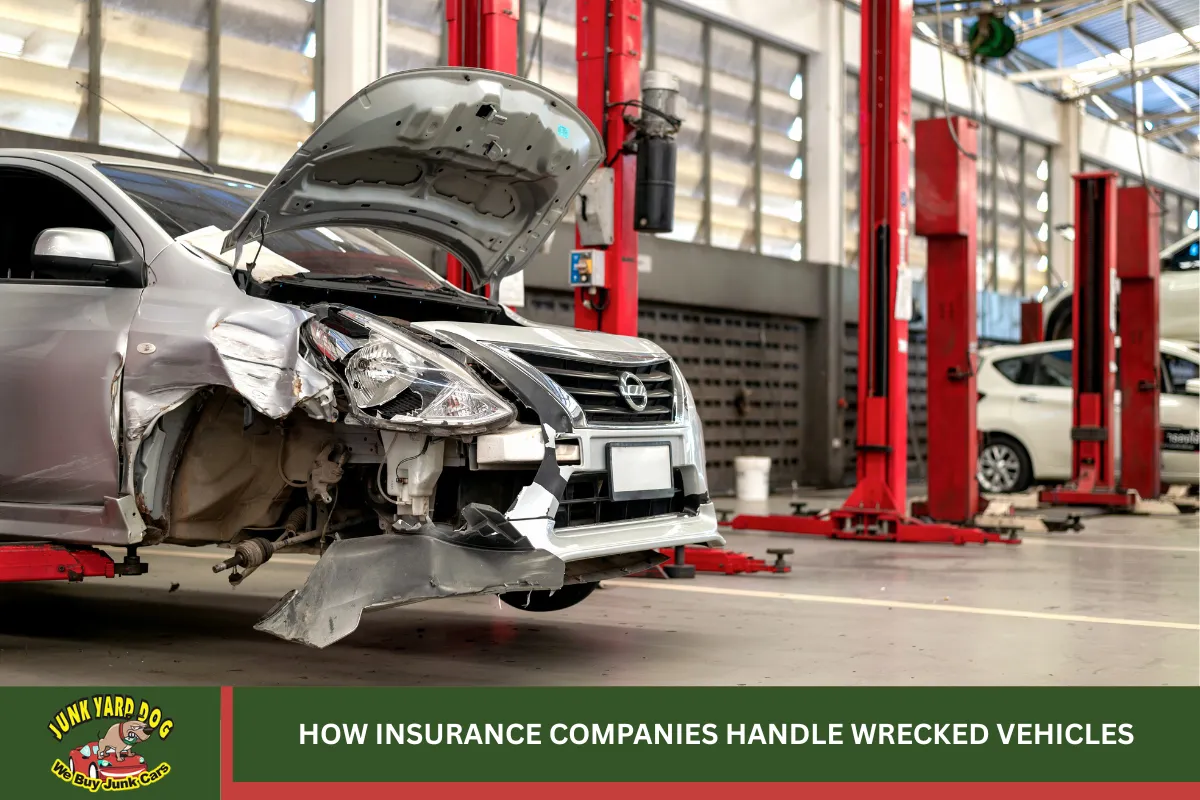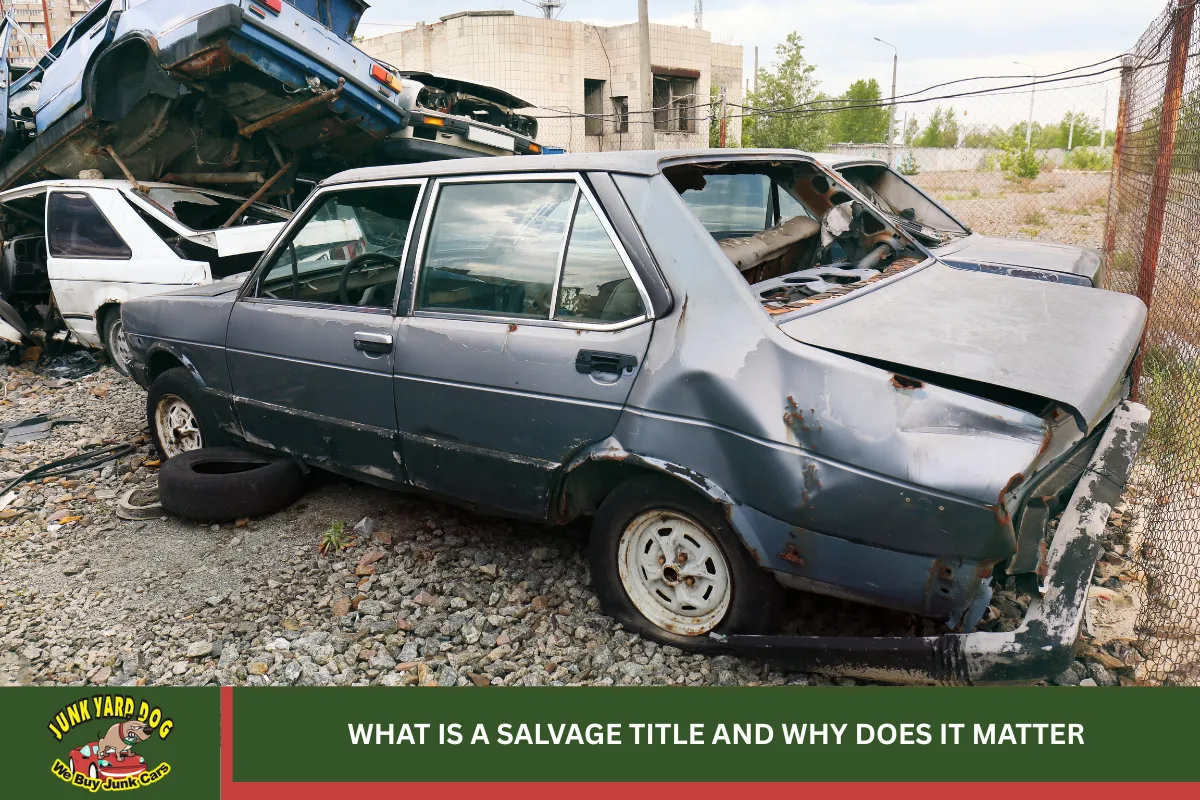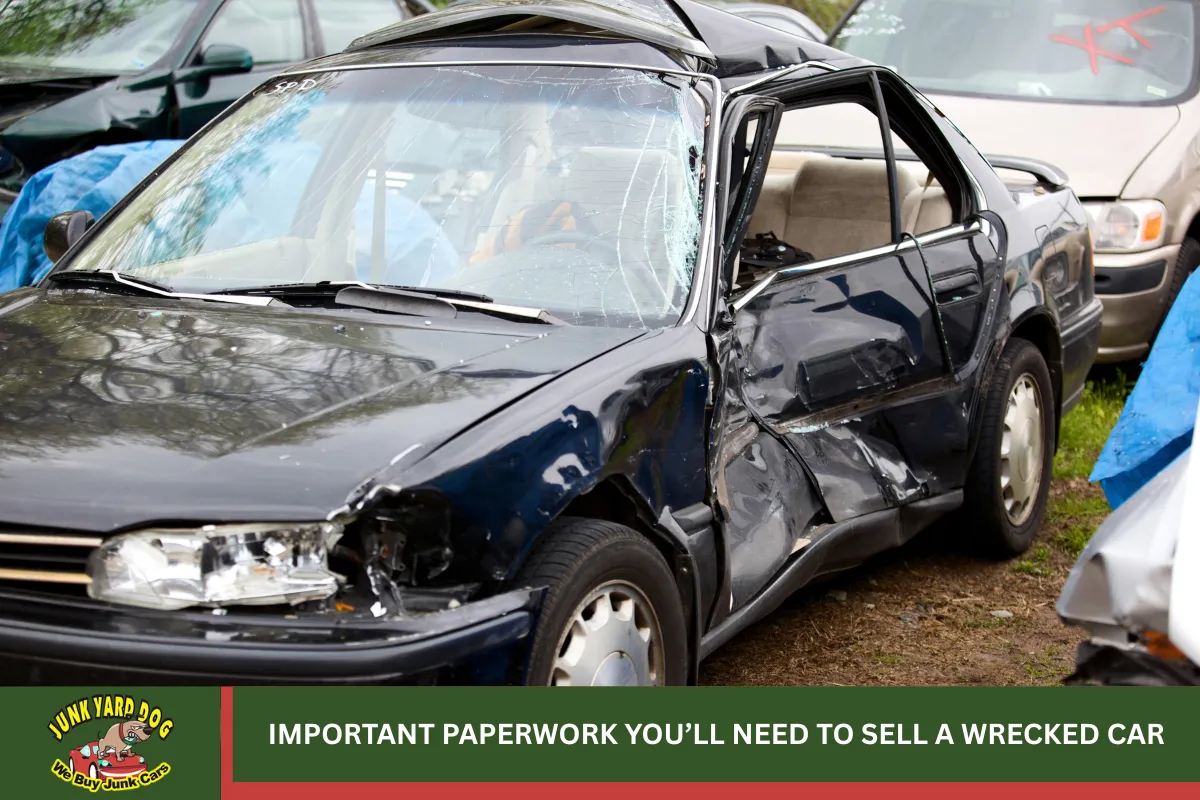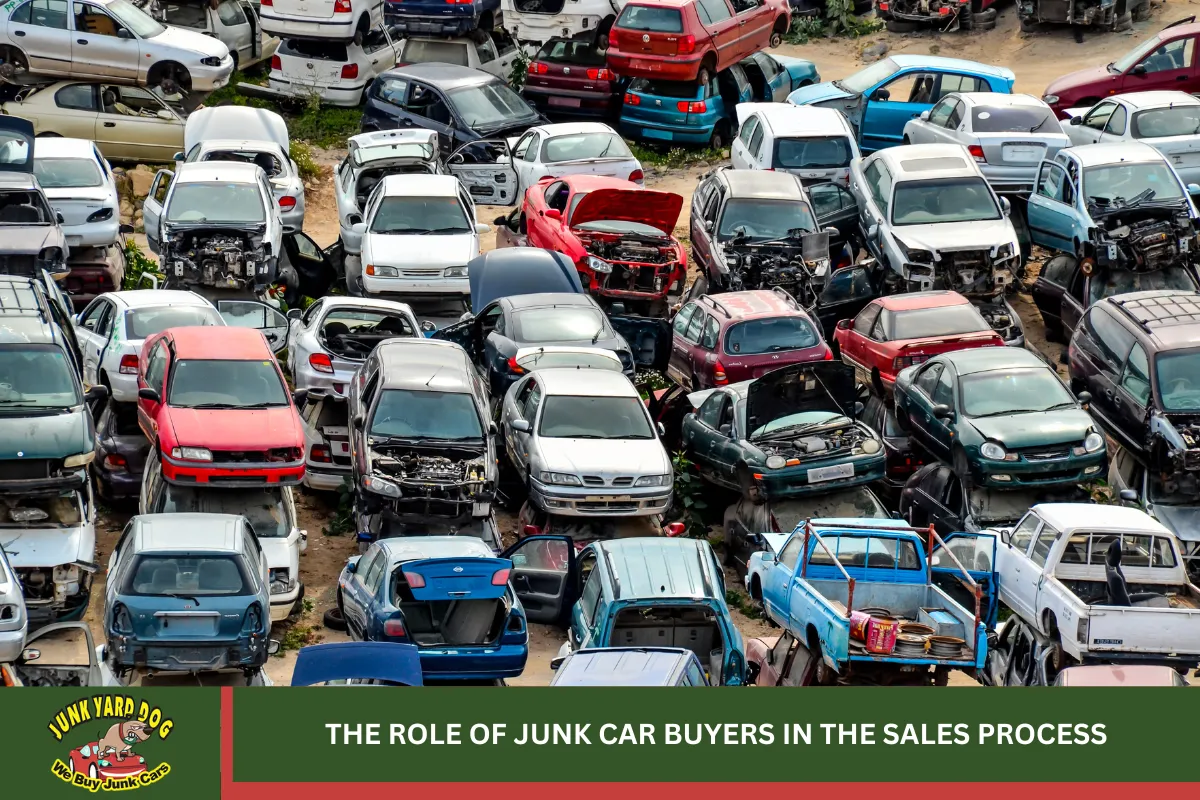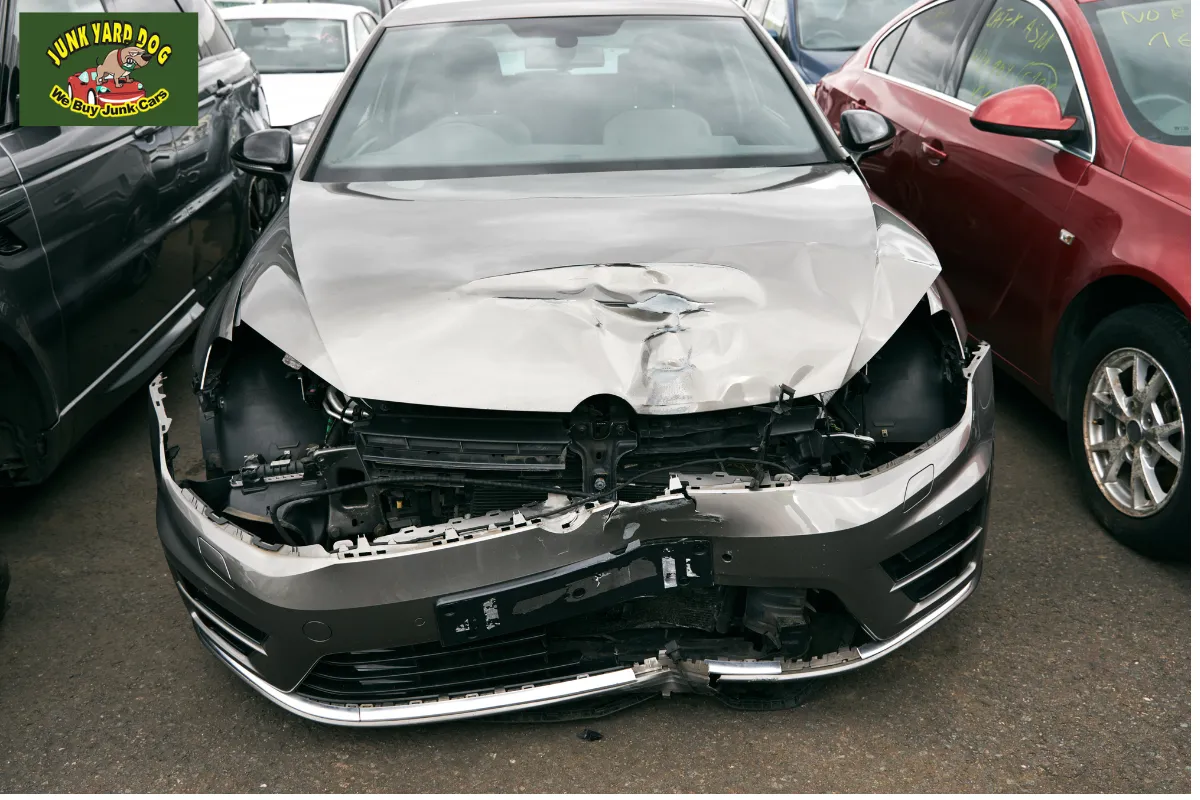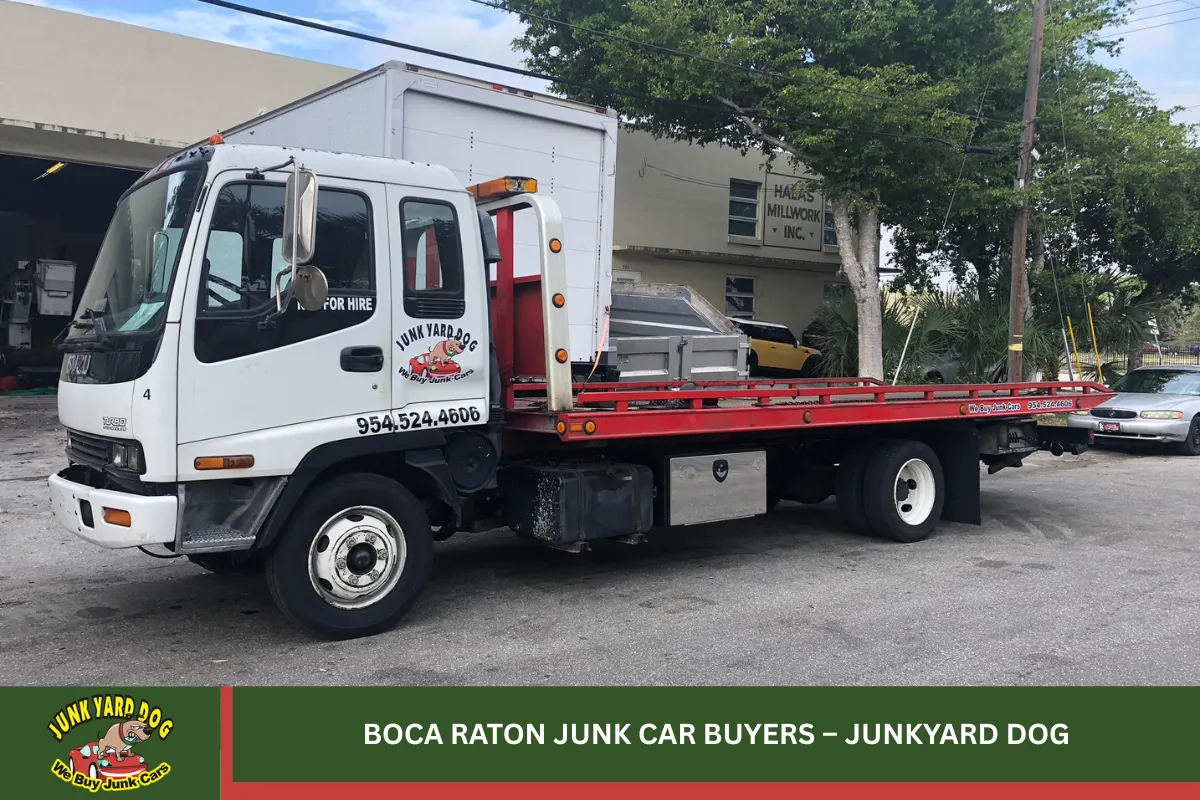Car accidents can lead to a range of complications, particularly when a vehicle is too severely damaged to be repaired. Many people in this situation explore options for selling their wrecked car, and in Boca Raton, junk car buyers are often considered for wrecked or non-functional cars. But before moving forward, it’s important to understand how insurance claims affect the selling process. From how insurance companies evaluate a vehicle after an accident, to the legal documents you’ll need, this article explains everything step-by-step so you can make the right decision when handling your damaged car.
How Insurance Companies Handle Wrecked Vehicles
When a car is involved in a serious accident and the damage is extensive, the insurance company will assess the vehicle’s condition to determine whether it is worth repairing. This is known as a total loss evaluation. In the state of Florida, a vehicle is declared a total loss when the estimated cost of repairs is equal to or more than 80% of the car’s actual cash value before the damage occurred.
Once the insurer decides the car is a total loss, they will provide a settlement offer based on the vehicle’s pre-accident value. This value is calculated using several factors such as mileage, make and model, overall condition before the accident, and current market trends. After the payout is issued, the insurance company will usually claim ownership of the vehicle unless the policyholder chooses to retain it.
What Is a Salvage Title and Why Does It Matter
In Florida, a salvage title is issued when a vehicle has been declared a total loss due to damage. This title officially marks the vehicle as unsuitable for regular use on public roads until significant repairs are made and it passes an official inspection.
A salvage title is important because it directly affects how the car can be sold. Vehicles with salvage titles typically can’t be driven legally, registered, or insured until they are rebuilt and inspected. Most buyers are unwilling to purchase a salvage vehicle unless they are in the business of repairing or dismantling vehicles for parts. That’s why junk car buyers are often the only practical option for people looking to sell a totaled car with a salvage title.
Understanding the Rebuilt Title Process
Once a car has a salvage title, it is not completely worthless. Some owners choose to repair the vehicle and have it retitled as rebuilt. A rebuilt title is issued after the car is restored to working condition and passes a rigorous inspection by a certified facility approved by the Florida Department of Highway Safety and Motor Vehicles (FLHSMV).
To receive a rebuilt title, the vehicle must meet strict safety and roadworthiness standards. All repairs must be documented, and detailed records of replacement parts and mechanical work must be submitted. If the car passes inspection, it can be registered and insured again. However, even with a rebuilt title, the vehicle’s resale value is usually lower than a comparable car with a clean title.
This is why many owners decide not to invest in repairs and instead look for junk car buyers who are willing to purchase the vehicle as-is.
Insurance Settlements and Retaining a Wrecked Vehicle
After a vehicle is declared a total loss, the policyholder typically has two choices. The first option is to accept the full insurance payout and allow the company to take ownership of the car. The second option is to retain the car and accept a reduced payout. In this case, the settlement amount is adjusted by subtracting the salvage value of the car, and the owner is allowed to keep it.
Retaining the vehicle gives the owner more control over what happens next. They can choose to sell the car themselves, use it for parts, or try to rebuild it. This is a popular route for people in Boca Raton who want to work directly with junk car buyers to get more than the salvage value estimated by the insurance company.
Important Paperwork You’ll Need to Sell a Wrecked Car
Whether the car is totaled or only partially damaged, selling it legally requires certain documents. In Boca Raton, the required paperwork for selling a wrecked vehicle typically includes:
- The Vehicle Title: This shows legal ownership of the car. If the title has been marked as salvage, that will be clearly printed on the document.
- Photo Identification: A valid Florida driver’s license or state-issued ID is required to verify identity.
- Lien Release Letter: If the car was financed and the loan has been paid off, a lien release must be provided.
- Odometer Reading: Even for wrecked cars, the current mileage is usually recorded as part of the transaction.
Some junk car buyers can complete the purchase even if the title is lost, provided the seller offers alternative documents such as registration and proof of ownership. However, not all buyers offer this service, so it’s best to check in advance.
The Role of Junk Car Buyers in the Sales Process
Junk car buyers play a key role in the resale of vehicles that are no longer fit for the road. These buyers specialize in purchasing cars that have been damaged beyond repair, salvaged, or written off by insurance companies. They evaluate the vehicle based on its parts, scrap metal value, and the condition of major components like the engine or transmission.
Most junk car buyers offer a straightforward process. Once they receive details about the vehicle’s make, model, year, and condition, they provide a cash offer. If the seller agrees, the buyer arranges for the car to be picked up—usually for free—and payment is made at the time of pickup.
In cities like Boca Raton, where vehicle damage from storms and heavy traffic is common, junk car buyers provide a much-needed service. They help people dispose of wrecked cars quickly, eliminating the hassle of finding a private buyer or spending money on repairs.
Legal Responsibilities When Selling a Wrecked Car
Sellers have a legal responsibility to disclose all known issues with the vehicle. In Florida, it is against the law to hide the fact that a car has been in an accident or has a salvage title. This applies even if the vehicle is being sold for parts or to a junk car buyer.
Sellers must also ensure the transfer of ownership is completed properly. This involves signing over the title, removing the license plates, and notifying the Florida Department of Highway Safety and Motor Vehicles (FLHSMV) that the car has been sold. Failing to do so could result in continued responsibility for tolls, tickets, or other legal issues related to the vehicle.
Junk car buyers often help with this part of the process by providing the necessary paperwork and ensuring everything is filed correctly. This makes the transaction easier and more secure for the seller.
Things to Avoid When Selling a Wrecked Vehicle
Mistakes during the selling process can lead to legal issues or lost money. Here are a few things to avoid:
- Delaying the Sale: The longer a wrecked car sits, the more it deteriorates. Rust, mold, and leaking fluids can lower its value significantly.
- Failing to Disclose Damage: Always inform the buyer of the vehicle’s accident history and title status.
- Accepting Lowball Offers Without Comparison: It’s always smart to contact multiple junk car buyers and compare their offers before making a decision.
- Handing Over the Car Before Payment: Always finalize payment before releasing the vehicle.
- Neglecting the Title Transfer: Never skip the official paperwork. It protects you from future liability.
Being careful and well-informed helps you avoid common pitfalls and ensures a smooth transaction.
A Clear Path to Selling a Wrecked Car in Boca Raton
Understanding the insurance claim process and the title system in Florida gives car owners more control when it’s time to sell a wrecked vehicle. Junk car buyers offer a fast and efficient solution for individuals who prefer not to repair or rebuild their damaged vehicles. Selling to these buyers avoids the delays and complications of private sales or auctions, and often results in a quick cash payout.
By gathering the correct documents, communicating honestly, and choosing a reputable buyer, vehicle owners can complete the sale with confidence. Whether your car has a salvage title or is no longer drivable, the steps are clear and manageable. With the right information and a straightforward plan, selling a wrecked car in Boca Raton becomes a practical and stress-free process.
Boca Raton Junk Car Buyers – Junkyard Dog
If you’re ready to get rid of a wrecked or unwanted car in Boca Raton, Junkyard Dog offers a fast and reliable way to sell it. As a licensed Florida car buyer, we provide quick quotes, same-day pickup, and instant cash for junk cars in any condition. We handle everything from paperwork to towing, making the process simple for you.
Our team buys all types of vehicles—cars, trucks, vans, and SUVs—whether they run or not. No title? That’s okay. We’re still able to buy your car legally. You can count on us for professional service, fair offers, and free removal within an hour in Boca Raton, Fort Lauderdale, and the surrounding areas. Call now for a quote at (561) 216-4111 and turn your junk car into cash today!
Frequently Asked Questions About Insurance Claims and Selling Wrecked Cars in Boca Raton
1. Can I sell my car if the insurance company has declared it a total loss?
Yes, you can legally sell your car after the insurance company has declared it a total loss, but there are specific conditions. When a vehicle is totaled in Florida, the insurer usually offers a settlement and may take possession of the vehicle in exchange. However, if you choose to retain the salvage, the car’s estimated salvage value will reduce your settlement amount, and the title will be marked as “salvage.” You must then apply for a salvage certificate through the Florida Department of Highway Safety and Motor Vehicles (FLHSMV). Once you receive this salvage title, you are legally allowed to sell the car to junk car buyers or private individuals. Buyers must be informed of the salvage status upfront. Florida law requires accurate disclosure during vehicle sales, especially when dealing with title-branded vehicles. Keeping your paperwork in order is essential to avoid future legal or financial issues.
2. What does a salvage title mean, and how does it affect the sale?
A salvage title in Florida indicates that a vehicle has been damaged to the extent that the cost of repairs is at least 80% of the vehicle’s market value before the incident. The state issues this designation once the insurance company declares the vehicle a total loss. Cars with salvage titles cannot be driven, registered, or insured for road use unless they are rebuilt and pass a state inspection. This title significantly affects the resale value and marketability of the car. Most private buyers are hesitant to purchase salvage vehicles due to safety and repair concerns. However, salvage vehicles are often sold to junk car buyers, who dismantle them for parts or sell them for scrap. If you’re planning to sell a salvage-titled vehicle, make sure you disclose this status to the buyer. The Florida DMV requires clear communication regarding any branded titles in the sale process.
3. Do I need a title to sell my wrecked car to a junk car buyer in Florida?
In most cases, having the vehicle title is required to transfer ownership in Florida legally. However, many licensed junk car buyers in Boca Raton can still purchase your vehicle even if the title is missing—as long as you can prove ownership. This typically involves providing alternative documents such as the vehicle registration, your driver’s license, and possibly a signed affidavit or bill of sale. The buyer may also request a copy of the insurance card or a recent repair invoice that includes the Vehicle Identification Number (VIN). Junk car buyers with a Florida secondary metals recycler or salvage dealer license often have the tools and legal authority to process these types of sales. Still, it’s important to work only with reputable, state-licensed buyers. Selling a car without a title may take extra time and documentation, but it is legally possible under Florida law when the proper steps are followed.
4. Will selling my wrecked car affect my insurance in the future?
Selling your wrecked car after an insurance claim generally does not directly affect your future insurance rates, especially if the accident was not your fault. However, the claim itself—regardless of the sale—may remain on your insurance record. Insurance companies track all filed claims, including total loss payouts, and they may use this information when determining your risk profile and setting your premium for future policies. If you are found at fault for the accident, your rates could increase. Also, if you retain and sell the car after the insurance payout, it’s important to inform your insurer that the vehicle is no longer in your possession. This helps avoid issues such as billing for unused coverage or mistakenly reporting the car as still active in your name. Always keep documentation of the sale and any communication with your insurance provider to protect yourself from potential misunderstandings.
5. How do I notify the DMV after selling a wrecked vehicle?
Once you sell a wrecked car in Florida, it’s important to officially notify the Florida Department of Highway Safety and Motor Vehicles (FLHSMV). This step is crucial for releasing yourself from any future liability tied to the vehicle. You can file a Notice of Sale (Form HSMV 82050) online through the FLHSMV website or submit it in person at a local DMV office. The notice includes the buyer’s information, the date of the sale, and details about the vehicle, such as the VIN and title number. This document ensures the DMV records the car as sold and no longer your legal responsibility. Additionally, you should remove the license plate and cancel the insurance policy on the vehicle. Taking these actions not only protects you from future fines or toll violations, but also ensures that the car can’t be used improperly while still appearing under your name in state records.
Read more: How Junk Car Buyers in Boca Raton, FL Work with Insurance Companies
